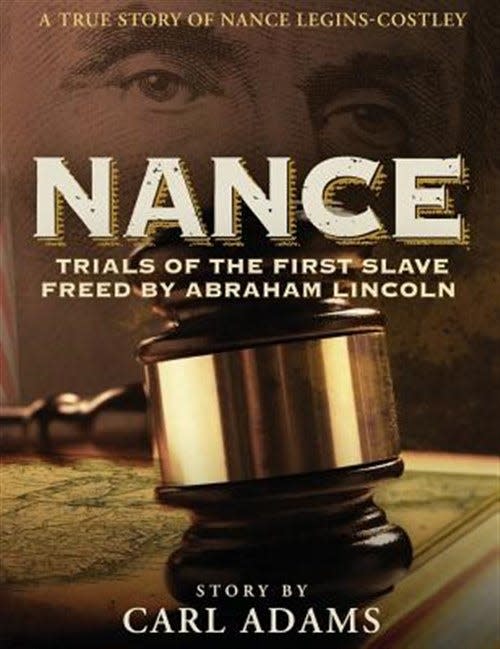Pekin to celebrate ties to Juneteenth, emancipation with historical markers

- Oops!Something went wrong.Please try again later.
Nance Legins-Costley and her son William Costley are recognized as the first enslaved individuals emancipated by Abraham Lincoln.
They were also Pekin residents, but Tazewell County Clerk and Recorder of Deeds John Ackerman believes there is no fitting memorial celebrating their contribution to local history.
“Pekin has no lasting indication of the importance they played in the community as the first enslaved individuals emancipated,” Ackerman said. “It’s a part of Pekin’s history we’re hoping to bring forward and bring to light.”
The Pekin City Council unanimously voted to address the lack of a memorial to the Costleys Monday, approving a resolution to participate in the purchase of two historical markers.
The markers will be displayed in a pocket park in the 400 block of Court Street. Ackerman said the markers will provide context for a memorial stone that will be dedicated on June 19, or “Juneteenth.”
More:Bob Michel Bridge will close for eight months this year
Born a slave in Kaskaskia in 1813, Legins-Costly was sold in 1828 to Pekin co-founder Nathan Cromwell. Outraged at being forcibly separated from her family, she appealed the legality of the sale and spent the next 13 years trying to win her freedom in court cases.
After two unsuccessful appeals with the Illinois Supreme Court, she turned for representation to Lincoln’s Pekin law offices in 1839. In Bailey v. Cromwell in 1841, the Illinois Supreme Court ruled, “It is a presumption of law, in the State of Illinois, that every person is free, without regard to color,” and “the sale of a free person is illegal.”
Local historian Carl M. Adams documented Legins-Costley’s persistence in her battle to win freedom for herself and her family in his 2016 book, “Nance: Trials of the First Slave Freed by Abraham Lincoln: A True Story of Mrs. Nance Legins-Costley.”
Born in 1840, William Costley volunteered for the Union Army during the Civil War and served in the 29th U.S. Colored Infantry. He fought and was wounded in the Battle of Petersburg. He was also present for the June 19, 1865, liberation of Galveston, Texas, where Gen. Gordon Granger publicly read President Lincoln’s Emancipation Proclamation.
“Pekin has a direct tie to the original Juneteenth event in which the last of the enslaved individuals were informed of their freedom,” Ackerman noted.
Costley’s status as a Civil War veteran, one of the first slaves to win emancipation (at just a year old) and a participant in the original Juneteenth event is sufficient to win him a place of honor in any community’s history. But he also won a reputation in his own time as a defender of local womanhood.
In a 1999 article for the Abraham Lincoln Association, Adams related an 1870 incident in which Costley saw an intoxicated man who had previously been convicted of rape beating a woman in the street and in the presence of witnesses. Costley first warned the man to stop. When the man ignored him, Costley drew his service revolver and killed him with a single shot to the chest.
Put on trial for the murder of a white man, Costley was acquitted by an all-white, all-male jury on the grounds of justifiable homicide.
“An all-white jury acquitted him on the grounds that, ‘We know the character of William Costley. We also know the character of the lying scoundrel who was beating his wife. Thus, we find him innocent,’” Ackerman noted. "Twelve residents of Pekin judged a man by his character rather than the color of his skin, 100 years before Martin Luther King requested that.”
This article originally appeared on Pekin Daily Times: Pekin to honor freed slave, Union veteran with historical markers
